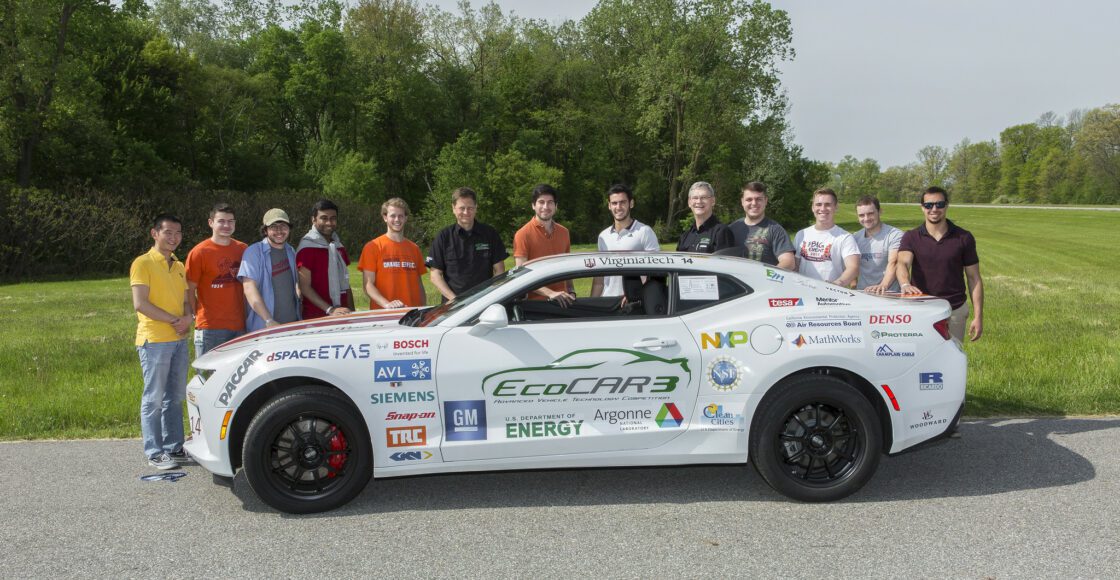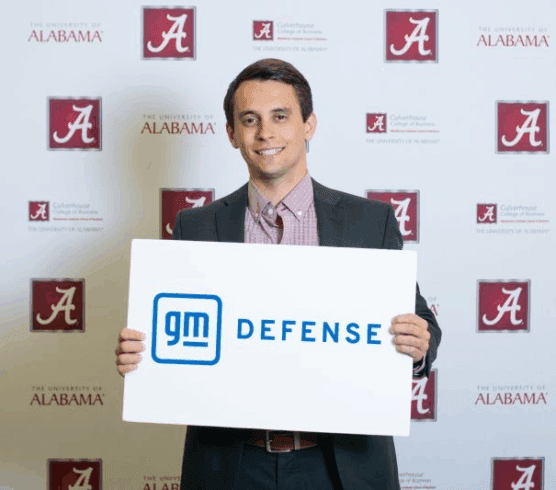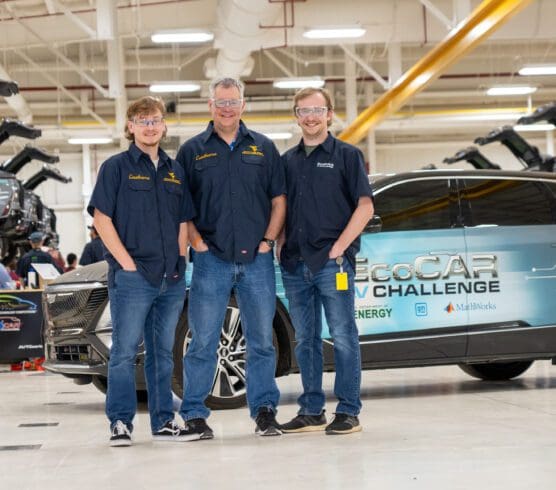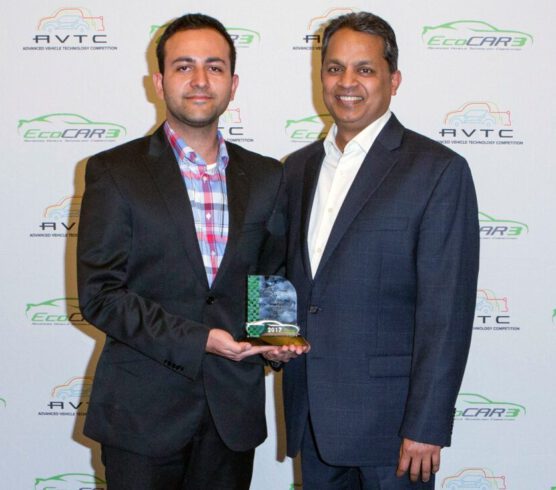This blog post was written by Whitney Belt, an alumnus of the Purdue EcoMakers.
The EcoCAR program helped me tremendously by increasing my knowledge about the current state of hybrid electric vehicle (HEV) technology and giving me a better understanding of all of the background tasks required to design an HEV. My current job is in the rotational Ford College Graduate program at Ford in the Sustainable Mobility Technology department where I will go through various systems design, controls design and testing programs for current and future hybrid projects.
Entering EcoCAR 2, I had plenty of experience with the function and operation of standard gas and diesel powered vehicle and low voltage (LV) systems. I was a GRA for the Purdue EcoMakers, and was in charge of leading the design of the high voltage (HV) energy storage system (ESS) for our parallel-through-the-road (PTTR) architecture as well as helping the powertrain teams. I had not worked with any hybrid propulsion or HV systems, so I had to do a lot of research to catch up. Fortunately, the EcoCAR program provided an endless supply of knowledgeable contacts to answer my questions questions and all of the programs that would be required to succeed. The competition also connected teams with a large number of HEV vendors, which gave us access to all of the equipment that is available to automakers. These advantages gave me a huge head start versus other entry level applicants in the job market as I was more knowledgeable about available products and technologies and had experience with most of the tools that auto makers use in their design processes.
Belt (3rd from right) at the 2012 Winter Workshop in Austin, TexasAlong with technical gains, I grew in the area of project management. I had previous experience on smaller projects with groups of four to five people, but this project required that I manage teams of twenty to thirty people with little prior automotive or electrical experience. In doing so, I learned how to properly train and task team members so that the overall project would be completed on time. Another crucial part of project management is collecting data through simulations and writing reports that summarize the results. This was a huge part of EcoCAR 2, as we were required to compose reports detailing every step of the design process. All of these tasks helped me with my current job because reports, project management and the ability to delegate tasks are a crucial part of the design process in a large company.
All-in-all, EcoCAR 2 participation significantly aided me in obtaining my current job and earned me several other job offers and with sponsors from the EcoCAR 2 program. It gave me experience that has enabled me to perform in the auto industry.




